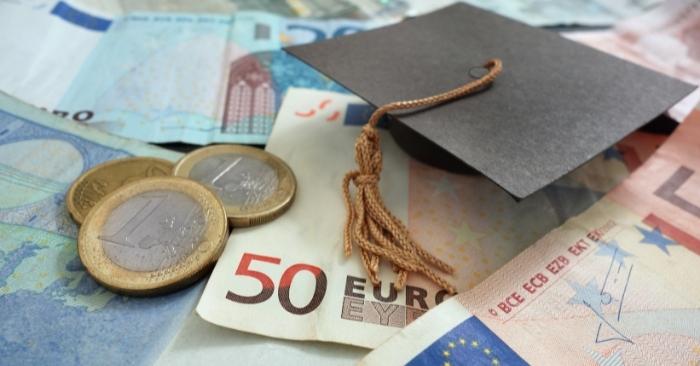Global Money Week 2022: Let’s Talk About Money!

Money Management Education for young people
From 21 – 27 March 2022, around 2,800 young people aged 14-18 living in Ireland will participate in Global Money Week, an international initiative launched by the OECD and supported by the United Nations and other intergovernmental bodies. This global campaign aims to draw attention to the fundamental role of money management education (MME) for young people and to support the lifelong development of positive personal financial behaviours and decision-making skills.
Since the campaign was first launched in 2012, over 150 countries have taken part in Global Money Week, and national stakeholders have delivered targeted financial education sessions and workshops to over 53 million young people worldwide. In Ireland, the Money Advice and Budgeting Service (MABS) is the leading national organisation that supports the delivery of this campaign. This year, MABS Staff will visit approximately 50 schools in 16 counties throughout Ireland to deliver financial training and workshops on ‘prioritising spending’, ‘budgeting’, ‘savings’, ‘protecting our money’, ‘borrowing’ so on.
Developing personal finance skills
The significance of the Global Money Week campaign, as well as any and all efforts to provide opportunities for young people to learn about personal finance, cannot be understated. Arguably, there is a need for further targeted support for young persons living in Ireland in this area. In 2021, survey data released by SpunOut.ie and the Irish League of Credit Unions (ILCU) revealed that over 1 in 4 (or 26%) college students living in Ireland report that they have little to no understanding of financial topics. And nearly two-thirds (60%) report that they would like to improve their overall money management and budgeting skills.
Research also shows that the earlier a person begins to learn and engage with money matters, perhaps unsurprisingly, the better. For instance, a 2018 study on financial capability in Ireland published by the Competition and Consumer Protection Commission (CCPC) found that of populations who are financially ‘secure’, 75% report speaking to their parents about money issues when growing up, and 60% learned about money matters in school and college. In contrast, for those living in Ireland who are ‘struggling’ financially, only 38% grew up in families that discussed money and 10% received financial education in school.
2018 study on financial capability in Ireland
Unfortunately, the topic of ‘money’ and ‘spending’ is still a taboo subject within many families and communities in Ireland. It is important to support public awareness-raising and campaigns like Global Money Week. These campaigns challenge this stigma and promote healthy and ongoing discussions of money and personal finance at home and in schools.
We are also arguably living during a time where there are numerous structural barriers at work that negatively impact household financial wellbeing in Ireland – and every day at MABS, we see the effects of these barriers for those who access our services. We would argue that many of these issues are systemic and may even worsen in the future, disproportionately affecting younger persons throughout their lives. These challenges include:
- The escalating cost of living crisis, further exacerbated by the pandemic, recent spikes in the cost of housing (in particular private rents), climate change and the cost of energy.
- The importance of strong personal digital skills and competencies to enable financial wellbeing. This importance is related to the increasing use of financial technologies (FinTech) and the movement towards becoming a cashless society.
- The role of alternative forms of credit, for example, hire purchase (HP) agreements and buy now pay later (BNPL) schemes.
- The rising number of reported scams, fraudulent activities, and cyber-attacks further emphasises the importance of protecting personal information online. Online shopping has increased exponentially since the pandemic, with young people more likely to shop online than older persons.
- The narrowing of the personal banking sector in Ireland, including the closure of in-person banking facilities throughout the country and recent decisions of 2 of the 5 major banks (KBC and Ulster Bank) to exit the Irish market. This reduces banking options and competition on the aggregate and limits options for credit availability with mainstream lenders.
It is important to note that, for many students, Global Money Week simply serves as an introduction to a vital topic. There is a need to have continued discussions and learning opportunities in the future.
Let’s keep the conversation going
For Irish society, Global Money Week serves as a chance to promote and facilitate a national conversation around ‘money’ and to stress the importance of lifelong money management and financial education for young people. It is also on us as members of society to continue these conversations throughout the other 51 weeks a year.




Facebook
twitter
Instagram